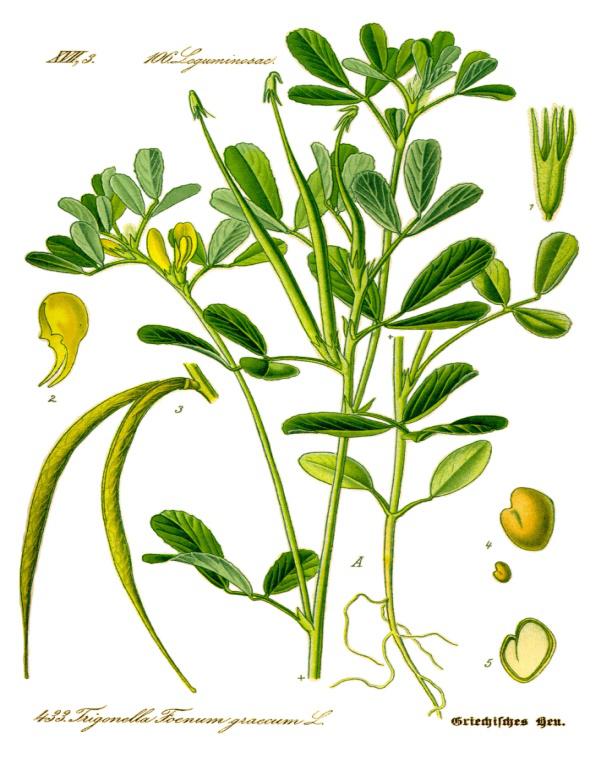White Crow’s Herb Corner, May 2014
What’s a Fenugreek Seed? They are these little odd shaped golden seeds that are very delicious sprouted and eaten raw in salads or cooked in curries. The seeds of the Fenugreek plant were first brought into cultivation in the Near East millenniums ago. In Iraq, charred Fenugreek seeds have been recovered that carbon date back 4ooo years. Also in the tomb of King Tut were found Fenugreek seeds as well. An interesting note is one of the common names for Fenugreek was ‘Greek Hay’, and in ancient times, the plant was used to scent inferior hay for sale, and was probably not the most respectable practice of that time period. The Egyptians, Greeks and Romans all highly prized the seeds of Fenugreek for their medicinal and culinary purposes. The aromatic, bitter and peculiar celery like smell and taste actually grow on a person, and the sprouted seeds can become quite a habit to enjoy as part of a daily meal.
Fenugreek (Trigonella Foenum-Graecum) is a clover like plant that is best known as a lung and chest herb, and has been used to expel mucus and phlegm from the bronchial tubes, sooth sore throats, aid the digestive system, and lubricate the intestines. The high mucilaginous compounds coat ulcers and intestinal sores, and ease all inflamed tissues, inside or outside the body. Fenugreek also assists in relieving the symptoms of allergies such as hay fever, and helps clear up coughs of all kinds. The seeds contain lecithin which helps dissolve cholesterol and fatty substances inside the body. It also contains bitter compounds that increase the production of digestive fluids and enzymes and have a mild laxative effect. Fenugreek is an excellent herbal source of iron and selenium. Dr. John Christopher suggested that anyone who sings or lectures would benefit considerably by taking a half teaspoon of Fenugreek seed powder with a quarter teaspoon of honey, and place this mixture on the tongue to suck on for as long as possible. This can have a remarkable effect on cleansing and strengthening the vocal cords and bringing clarity to the voice.
My favorite way to eat Fenugreek is to sprout the seeds. It is so easy to do, all you need is a jar and some water. First, soak a handful of seeds overnight in a quart mason jar with a screen lid. In the morning rinse well and leave the jar tilted sideways in a bowl all day. Be sure to rinse twice throughout the day. Within two days the seeds will have sprouted tails and are ready to eat when the rootlet is about one inch long (usually about 5 days).
They are wonderful added to salads and sandwiches, also try garnishing on top of vegetables, or mixing into vegetable dishes. Fenugreek seeds have a unique flavor that will enhance any dish. Soon you will be craving them daily, and you can reap the rewards of their healing benefits and wonderful flavor.


